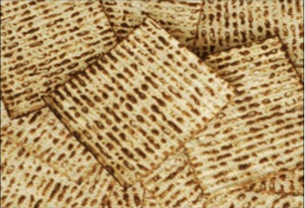Preparation is a significant and integral part of every biblical holiday. The planning during the week prior to each Sabbath usually culminates on Friday in a bustle of cleaning, last minute shopping, food preparation and welcoming guests. Then the candles are lit and the peace of Shabbat is ushered in like a radiant, beautiful Queen. Without some advance planning and preparation this would not be possible. The same principle applies to the Shabbatot, the set-apart days, of the annual Festival Cycle.
Preparations for the annual festival of Pesach, or Passover, begin at least a month before the holiday, with a planned schedule of thorough housecleaning – the model for “spring-cleaning”! Invitations are given or received for the Seder meal, which is prepared for in fine detail. You can find great information and “how to’s” as to what constitutes “chametz” which needs to be removed from your home and this process at Chabad.org
Cleanse out the old leaven (chametz) that you may be a new lump, as you really are unleavened. For Messiah, our Paschal Lamb, has been sacrificed. (1 Corinthians 5:7). …
Passover PreparationRead More »

